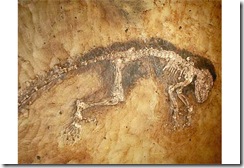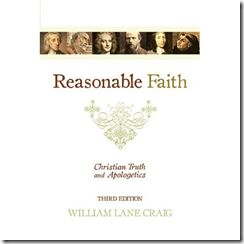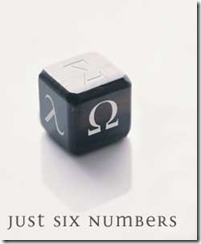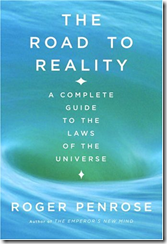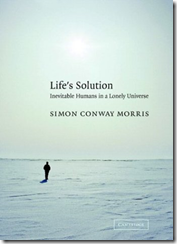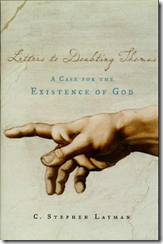Hello readers. I should introduce myself. I’m Dan . I’m a freshman studying engineering and physics in college. I making this post to strike up a discussion with Jack Scanlan. I would advise check out all his videos and posts. They contain much good information on biology , modern evolutionary theory and skepticism.
What I would first like to ask is about is Jack’s worldview.
His page states
I consider myself a naturalist: one who believes that the scientific method is the only way to study the Universe and gain knowledge.
However this seems to be an untenable view because there are many things that the scientific method cannot prove. For example, how does Jack make ethical judgements. How does he know it was wrong for Nazi scientists to experiment with and kill Jewish people? How does he make aesthetic judgements as to what is good or beautiful? and how does he justify science itself? It seems that if he uses the scientific method to justify science ,he would be using circular logic. If he uses some other method to justify science he would have refuted his own claim that the scientific method is the only way to study things. I would suggest Jack modify his statement a little. Perhaps he should say “the scientific method is the most reliable way to study the universe” or perhaps “the scientific method is the only way to make decisions within science”.1
And I would like to know what Jack’s own position on the rationality of theism. Many atheists hold that while theism is false , belief in theism may be rationally justified.2
The post I am responding to is here. What I want to do is build off the arguments presented by the poster and show that are sound or a least show they make theism more plausible.
1) God and the Origin of the universe
The Kalam cosmological argument for a first cause states
1) Whatever begins to exist has a cause.
2) The universe began to exist.
3) Therefore, the universe has a cause
Let us examine these premises.
Premise one seems very plausible to me. If I came up to you and said that a raging tiger came into being uncaused you would say I was being quite implausible. We all know that things do not pop into existence uncaused.
Can the past be infinite?
Premise 2 seems to be where the real dispute lies. I think there are good arguments for this premise. If Jack wishes to claim that the universe if beginningless he would have to say that time existed infinitely in the past. But this seems absurd. Imagine a man running up a flight of stairs and every time his foot strikes the top step, another step appears above it. It is clear that the man could run forever, but he would never cross all the steps because you could always add one more step.It would not be possible for the man to reach the top of the staircase because he would have to traverse an infinite number of steps .We are in a similar situation with respect to time. 1993 would never have arrived had it been preceded by a infinite number of years, because one cannot cross an infinite number of years to reach 1993 anymore than the man running up the stairs can cross an infinity of steps.Such paradoxes arise in reality when we try to claim the past is infinite. These kind of paradoxes caused German mathematician David Hilbert to say “the [actual] infinite is nowhere to be found in reality. It neither exists in nature nor provides a legitimate basis for rational thought”. This discussion has spilled over from mathematics into cosmology and physics so that cosmologists Ellis, Kirchner, & Stoeger say
“This is precisely why a realised past infinity in time is not considered possible from this standpoint – since it involves an infinite set of completed events
or moments”.3
Evidence for a beginning from physics
Premise 2 also has strong support from cosmology and physics. The expansion of the universe, red shift, cosmic background radiation ,general relativity, age of the stars and Sunyaev-Zel’dovich effect all serve to disconfirm models of a beginningless universe (such as Hoyle’s steady state model) and support the idea that it began with the Big Bang. The evidence is so firm that British cosmologist Paul Davies said in a recent interview that even though there is disagreement over minor details
I think the fact of the big bang – that the universe began abruptly at some finite moment in the past – is thoroughly established. There are very few scientists, very few cosmologists, who would dispute that.4
As if this evidence was not enough, in 2003 three physicists, Arvin Borde, Alan Guth, and Alexander Vilenkin, were able to develop a simple kinematic proof that any universe that is expanding must have a beginning.5After developing the proof Vilenkin said,
It is said that an argument is what convinces reasonable men and a proof is what it takes to convince even an unreasonable man. With the proof now in place, cosmologists can no longer hide behind the possibility of a past-eternal universe. There is no escape, they have to face the problem of a cosmic beginning. 6
Premise 3
The universe began to exist. Ponder that. The universe is by definition all of spacio-temporal existence, everything physical. It must have been brought into existence by something beyond space-time , something non-physical , immaterial and timeless. this should make Jack very uncomfortable, because as a naturalist he believes the only kinds things that exist are physical.What kinds of non-physical entities are there? Some philosophers hold that mathematical truths (like numbers) and abstract objects (such as sets) are not physical. But the thing is that abstract objects do not cause anything to exist. For example did you ever see the number 7 cause anything to exist?
The other option is what theists hold to, that there is some sort of non-physical spirit or mind, that is able to engage in causal relations with the physical world. The universe would have been caused by some timeless, immaterial intelligent mind able to create the universe from nothing, which is what theists understand to be God.
Another argument is there are 2 types of explanations we can have. One is personal explanation and the other is explanation in terms of impersonal causes. For example, imagine you came into the kitchen and saw a pot of water boiling. You can explain it by saying your mother placed it on the stove to boil. This is a personal explanation in terms of the actions of a mind acting as a personal agent . Alternatively you can also describe the change of state of the water molecules, the conduction of the pot and the convection currents in the water. This would be an impersonal explanation in terms of physical laws and matter. Now which is the explanation of the universe? At the beginning of the universe there was no matter or physical laws, so the cause could not be a natural one or physical one.
The only explanation open is a personal explanation, which fits in quite nicely with what I previously argued for where a personal agent, a mind caused the universe.
2)An argument from the existence of the universe
1) Anything that exists has an explanation of its existence, either in an external cause or in the necessity of its own nature.
2) If the universe has an explanation of its existence, that explanation is God.
3) The universe exists.
4) Therefore, the universe has an explanation of its existence. (from 1, 3)
5) Therefore, the explanation of the existence of the universe is God. (from 2, 4)
Let us examine the premises.
Premise 1 seems quite plausible. We know from our experience that things we see, whether it be a human or a planet or even a galaxy can be explained by referring to an external cause. If we deny this principle Jack might as well give up all science and biology and declare the world is just inexplicable and we should not do science to explain things. Now jack may ask “What’s exists out of the necessity of its nature?”. Now some philosophers and mathematicians hold that mathematical concepts and logic exist because it is necessary for them to exist. Any world that had no mathematics or logic would clearly be absurd. Mathematical truths are not caused and are eternal, that is they could not possibly fail to exist. Jack may wish to claim that the universe exists out of necessity, like logic and mathematical concepts. But we can clearly see this is false. For something to be necessary it could not possibly fail to exist. But cosmologists tell us the universe did begin to exist and the the universe will end and fail to exist in the future. It cannot possibly be necessary.
As for premise 2 ,I have argued for God as the cause of the universe in my previous argument so I should not repeat myself here.
Premise 3 is undeniable and 4 and 5 follow logically from the other premises so it seems to me that this is sound.
3)The evidence of fine-tuning
Now physicists and cosmologists have recently discovered that in order for us to have a life-permitting universe (LPU) there has to be a lot of fine-tuning. The evidence for fine-tuning has to do with the fact that the laws of physics, the constants and initial conditions of the universe all fall into a very narrow range that would allow for the growth and development of intelligent beings such as ourselves.
Now there are 3 types of fine-tuning. They are:-
(i) The fine-tuning of the laws of physics.
(ii) The fine-tuning of the constants of physics.
(iii) The fine-tuning of the initial conditions of the universe.
Now i) has to do with the existence of certain laws and principles without which life would be impossible. To give a few examples, if gravity did not exist, masses would not clump together to form stars or planets, and hence complex, intelligent life would be impossible; if the electromagnetic force didn’t exist, there would be no chemistry; if the strong force didn’t exist, protons and neutrons could not bind together and hence no atoms with atomic number greater than hydrogen would exist; and if the strong force were a long-range force (like gravity and electromagnetism) instead of a short range force that only acts between protons and neutrons in the nucleus, all matter would either almost instantaneously undergo nuclear fusion and explode or be sucked together forming a black hole. As physicist Freeman Dyson points out, if the Pauli-exclusion principle did not exist, which dictates that no two fermions can occupy the same quantum state, all electrons would occupy the lowest atomic orbit, eliminating chemistry; and if there were no quantization principle, which dictates that particles can only occupy certain discrete allowed quantum states, there would be no atomic orbits and hence no chemistry since all electrons would be sucked into the nucleus. Without Baryon Conservation, ‘the entire material contents of the universe would disappear in a fireball of gamma radiation, as the protons decayed to positrons and annihilated all the electrons’.
ii) has to do with the constants of nature.
Now how do we assign probabilities to these? Now there are a range of theoretically possible values for each constant from the background theories. The actual value of the constant takes one of these values. There is a principle statisticians use called the “principle of indifference”7 or assumption of equiprobable alternatives. It says that unless we have good reason to assume otherwise we should assume every event is equally likely. For example imagine a 50-sided die. It would be highly impractical to roll the die and record the results so we can estimate the probability of each side turning up. Using the principle of indifference we can say that unless we have reason to think someone rigged the die, we can assign the probability of each side a 1/50 chance. In the case of the constants of nature we have no reason to think that a constant would fall into one value out of theoretically possible values rather than another so we can assign equal probabilities to each option. What I mean by “fine-tuning” of a constant is to say that of the theoretically possible values for the constant , the life-permitting range is small in comparison with the non-life permitting range.
What examples do we have of such fine-tuning? Take the gravitational constant (G).If it was too small , masses like stars and planets could not form. If it was too large any kind of intelligent life would be crushed could not evolve . The life-permitting range is so narrow Robin Collins estimated it was fine-tuned to a degree of one part in 10^36. Take the cosmological constant ,which governs the expansion of the universe. If it was too large space would expand so quickly that all matter would disperse and no galaxies or stars or planets could form. It is fine-tuned to a degree of 1 in 10^53.The strong force is fine-tuned to one part in 100. The proton-neutron mass difference is fine tuned to 1 in 18000. The weak force is fine-tuned to 1 in 10^9.8
iii) Has to do with the initial conditions of the universe after the big bang. One is the low entropy state of the universe. Without this low entropy , stars and galaxies could not form. Roger Penrose, an eminent Oxford mathematician and physicist calculated the odds of the universe having a low entropy state as 1 in 10^(10^123).9There are many other such instances of fine-tuning such as the initial distribution of matter and anti-matter, the balance between baryons and anti-baryons and the density of the universe that I will just mention in passing.10
Now for an illustration of the extraordinary improbability Robin Collins uses the analogy of a dart flying across the whole known universe and striking a target the size of a proton as analogy for the fine-tuning of gravity of 1 in 10^53.
I think we can make a good argument for fine-tuning using a principle of reasoning called the likelihood principle.11 The likelihood is a general principle of reasoning which tells us when some observation counts as evidence in favor of one hypothesis over another. Simply put, the principle says that whenever we are considering two competing hypotheses, an observation counts as evidence in favor of the hypothesis under which the observation has the highest probability (or is the least improbable). (Or, put slightly differently, the principle says that whenever we are considering two non ad-hoc* competing hypotheses, H1 and H2, an observation, O, counts as evidence in favor of H1 over H2 if O is more probable under H1 than it is under H2.)
This used in general reasoning all the time. For example , imagine that there was a murder and there are 2 suspects Bill and Bob.The 2 competing hypothesis’ could be that either Bob or Bill shot the victim.Now imagine finding Bob’s fingerprints on the murder weapon. Normally, we would take such a finding as strong evidence that the Bob was guilty. Why? Because we judge that it would be unlikely for these fingerprints to be on the murder weapon if the Bob was innocent, but very likely if the Bob was guilty.
This sort of reasoning is used in biology also. For example, evolutionary biologist Edward Dodson said.
“All [pieces of evidence] concur in suggesting evolution with varying degrees of cogency, but most can be explained on other bases, albeit with some damage to the law of parsimony. The strongest evidence for evolution is the concurrence of so many independent probabilities. That such different disciplines as biochemistry and comparative anatomy, genetics and biogeography should all point toward the same conclusion is very difficult to attribute to coincidence.”
So Dr. Dodson took the evidence from different fields and judged that while it might be improbable under other theories of biological development , it was not improbable under evolution.
So let me lay out my argument
1)Fine-tuning is highly improbable under atheism
2)Fine-tuning is not improbable under theism.
3)From premises 1) and 2) and the principle of likelihood we see that observation of fine-tuning is evidence for theistic design over atheism.
The premises seem to be valid and the conclusion logically follows. Now let me be clear. fine-tuning is not “proof” of theism any more that Tiktaalik is “proof” of evolution. It is just evidence in favor of theism and against atheism.
Jack’s objections
“However, this point is negated by the second problem with this argument: you’re looking at the outcome after the event.”
Now usually there is no problem with looking at evidence after the fact. For example, historical sciences look at history of biological development after the fact and use it to support different theories of biology.
You shouldn’t be shocked when, if you throw a pack of playing cards on the ground, a certain combination of cards lands face up. The odds against the combination were extremely low, astronomically low, in fact. It must have been designed, right? Wrong.
I would say the difference is that we are comparing the probabilities of 2 different hypothesis. For example imagine I rolled 20 dice and got 66341 12366 45655 23455. This is a highly improbable sequence. However , imagine if before I rolled the dice an occult group came to my house and said that there was a demon in the dice, whose favorite number was 66341 12366 45655 23455. There the roll would be evidence for the demon hypothesis. (However I may have other arguments against the existence of demons in dice.)
We should not be surprised to find ourselves in a Universe in which we can exist, because we couldn’t be in any other Universe and still be there observing our existence!
Philosopher John Leslie compared this sort of reasoning to a man led out to be executed by a firing squad. All member point their guns and fire at him. It is highly improbable that he would survive. Yet somehow he finds himself standing unscathed. The commonsense view is to weigh different hypotheses and perhaps check if was a mock execution , or their guns were not loaded or they all deliberately missed. Using this kind of logic , the man could merely say that his survival needs no explanation because he would not have survived had they missed.
4)The intelligibility of the Cosmos and laws of Nature
The laws of Nature seem to be carefully arranged so that they are intelligible, and in addition discoverable, by beings with our level of intelligence. This has been stressed by many prominent physicists. For example ,Albert Einstein famously remarked that “the eternal mystery of the world is that it is comprehensible…. The fact that it is comprehensible is a miracle” .Physicist Eugene Wigner,said “The miracle of the appropriateness of the language of mathematics for the formulation of the laws of physics is a wonderful gift which we neither understand nor deserve”. As theoretical physicist Paul Davies notes,
“uncovering the laws of physics resembles completing a crossword in a number of ways…. In the case of the crossword, it would never occur to us to suppose that the words just happened to fall into a consistent interlocking pattern by accident….” 12
I think I can formulate this argument in a similar fashion to the one above.
1)the intelligibility of the universe is improbable under atheism
2)The intelligibility of the universe is not improbable under theism.
3)From premises 1) and 2) and the principle of likelihood we see that observation of intelligibility is evidence for theistic design over atheism.
5)The reliability of thought
Let’s examine this quote from Charles Darwin
“With me … the horrid doubt always arises whether the convictions of man’s mind, which has been developed from the mind of the lower animals, are of any value or at all trustworthy. Would any one trust in the convictions of a monkey’s mind, if there are any convictions in such a mind?”14
Charles Darwin’s fear seems well founded. If our mind is only the product of unguided evolution, how can we trust its convictions or know that it is reliable. Recent research into evolutionary biology and neuroscience seems to show Darwin’s fears were well founded. For example Patricia Churchland ,a pioneer in neurophilosophy has said ,
“Boiled down to essentials, a nervous system enables the organism to succeed in the four F’s: feeding, fleeing, fighting, and reproducing. The principle chore of nervous systems is to get the body parts where they should be in order that the organism may survive. Improvements in sensorimotor control confer an evolutionary advantage: a fancier style of representing is advantageous so long as it is geared to the organism’s way of life and enhances the organism’s chances of survival. Truth, whatever that is, definitely takes the hindmost.” (Churchland’s emphasis)15
Now think of our cognitive faculties. Cognitive faculties are the things that form belief. Examples of these faculties would be memory, perception and a priori intuition (which is the method by which we know things like logical truths). It is clear that if you believe we evolved cognitive faculties were selected for survival value and not for their ability to form true beliefs.
Now a theist believes humans were made in the image of God. God could have created human beings separately or guided evolution so that it could produce humans with reliable cognitive faculties. The naturalist has no similar escape hatch and must live with Darwin’s doubt about his mind.
Now I think several of these are good arguments. Now by this I do not mean this argument is decisive and irrefutable. I think a good argument is something where you can lean back and ask “Does this evidence give me a good reason to change my views on this subject?” and ” Has this argument raised a serious problem with my present view?”. I think these questions that deal with the beginning of the universe, the existence of the universe , the fitness of the universe for life, the intelligibility of the universe and the reliability of thought pose problems for naturalists and I hope Jack will consider them.
*I think an appropriate restriction for a non-ad hoc hypothesis would be that we have independent motivation for the hypothesis aside from observation O.
1.Yes these arguments do come from William Lane Craig
2.For example Graham Oppy in his book “Arguing about Gods” concludes that while he does not find any of the arguments for God convincing, he thinks theism is rationally justifiable.
3.Ellis, G. F. R., Kirchner, U., and Stoeger, W. R. (2003) Multiverses and physical cosmology. http://arXiv.org/abs/astro-ph/0305292
4.”In Conversation with Paul Davies and Phillip Adams” ABC Science
5.Borde, A., Guth, A., and Vilenkin, A. (2003) Inflationary spacetimes are not past-complete. Physical Review Letters 90, 151301, http://arxiv.org/abs/gr-qc/0110012.
6.Many Worlds in One [New York: Hill and Wang, 2006], p.176.
7.“an astonishing number of extremely complex problems in probability theory have been solved, and usefully so, by calculations based entirely on the assumption of equiprobable alternatives [that is, the Principle of Indifference]” Weatherford, Roy. Foundations of Probability Theory. Boston, MA: Routledge and Kegan Paul, 1982. Also see http://www.philosophyprofessor.com/philosophies/indifference-principle.php
8.These calculations are from Collins, Robin. (January, 2003). “The Evidence for Fine-tuning.” In God and Design: The Teleological Argument and Modern Science, Neil Manson (ed.), Routledge. Dr. Collin’s site can be found at www.fine-tuning.org
9.Penrose , Roger The Road to Reality [New York: Alfred A. Knopf, 2005], pp. 729-730 also http://www.pul.it/irafs/CD%20IRAFS%2702/texts/Penrose.pdf
10.God and Design: The Teleological Argument and Modern Science, Neil Manson (ed.), Routledge.
11. This principle is based on the odds form of Baye’s Theorem .Robin Collins also uses this principle in his formulation of the Fine-tuning argument.Collins, Robin (2009). “The Argument from Fine-tuning” in The Blackwell Companion to Natural Theology, 2nd edition, ed. William Lane Craig and J. P. Moreland. Oxford, UK: Blackwell.
12.Davies, Paul (1984). Superforce: The Search for a Grand Unified Theory of Nature. New York, NY: Simon and Schuster.
13.( Richard C Vitzthum, “Materialism: An Affirmative History and Definition,” Prometheus Books, 1995, p. 220.) cited in http://triablogue.blogspot.com/2006/03/illogic-of-pro-choice.html
14.Letter to William Graham, Down, July 3rd, 1881. In The Life and Letters of Charles Darwin Including an Autobiographical Chapter, ed. Francis Darwin (London: John Murray, Albermarle Street, 1887), Volume 1, pp. 315-16
15.Patricia Churchland, “Epistemology in the Age of Neuroscience,” Journal of Philosophy 84 (October 1987):
